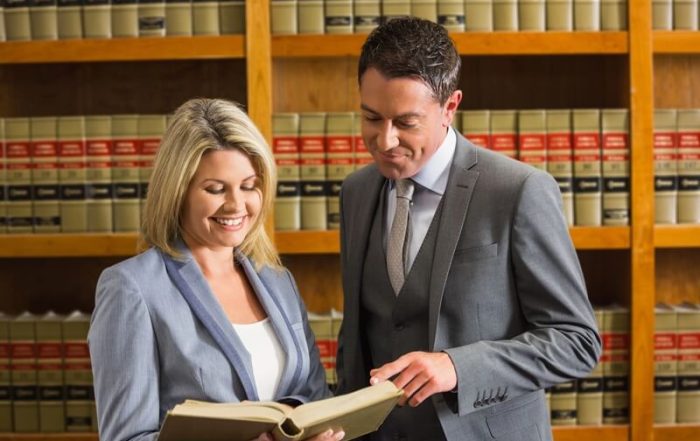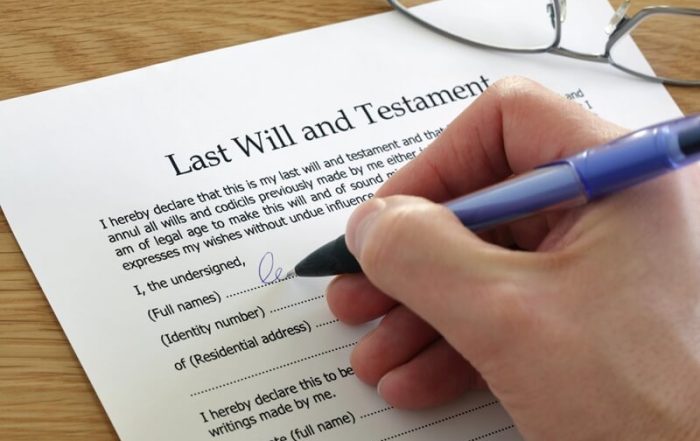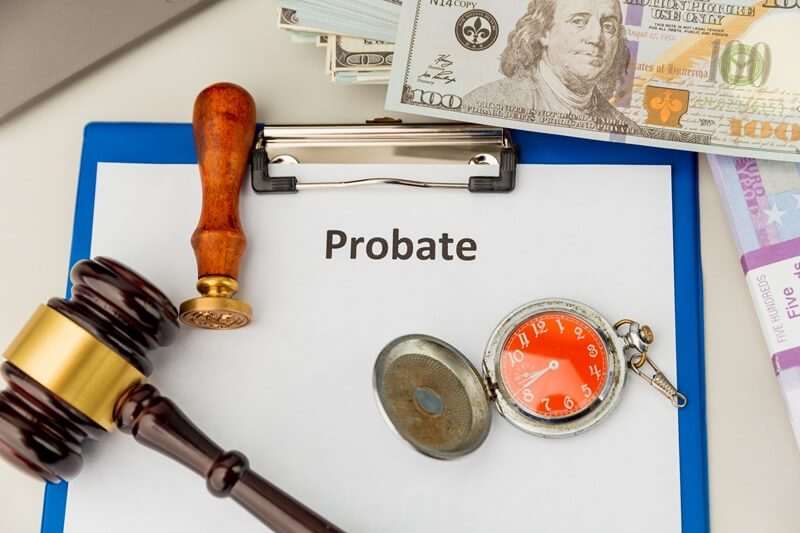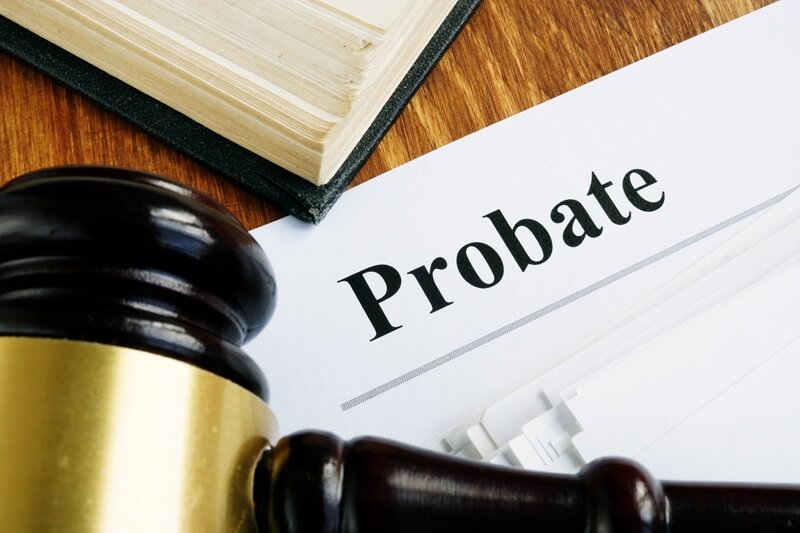Los Angeles Probate Litigation Resolves Will Disputes
When loved ones die, their final wishes, as outlined in a will, should provide comfort and closure for their beneficiaries. However, ambiguities or disputes over its interpretation can arise, creating challenges for those involved. Los Angeles probate litigation can provide a clear path to understanding and resolving these issues.
Here, you’ll learn about the probate litigation in California, focusing on how it resolves disputes over wills. See the common reasons for contesting and the critical steps in handling disputes. Learn how a probate litigation lawyer in California helps beneficiaries and heirs secure their inheritance.

Los Angeles Probate Litigation On Will Contest
When disputes arise over a will, probate litigation often becomes the necessary path to resolution. Disputes usually stem from concerns about whether the document reflects the testator’s or the creator of the document’s intentions.
Probate litigation involves a rigorous process where the courts scrutinize the contested document and evaluate the claims made by the disputing parties. This process includes examining evidence related to the testator’s mental state, analyzing the circumstances, and interpreting ambiguous language.
A probate litigation lawyer in California helps you understand the common issues that can impact the estate administration’s outcome. Understanding these is essential for anyone involved, as they set the stage for future legal challenges.
Several Reasons For Contesting A Will In California
Disputes over a will can arise for various reasons, often leading to lengthy and emotionally charged legal battles. These challenges can significantly impact the distribution of an estate, potentially altering who inherits what and causing rifts among family members.
Ambiguity Of Language
Ambiguity often triggers significant disputes among beneficiaries, making it a common reason for contests. Beneficiaries usually have differing opinions on estate distribution if the document contains vague wording, conflicting provisions, or confusing terms.
The probate court interprets the will as closely as possible to the testator’s intent. It often involves examining the language in the context of the entire document and considering external evidence. The goal is to resolve disputes and ensure everyone receives what they are rightfully due from the estate.
Allegations Of Undue Influence Or Coercion
Undue influence or coercion occurs when someone manipulates a vulnerable testator into changing or creating a will that benefits them disproportionately. Since these allegations arise after death, the focus shifts to uncovering evidence from their life that suggests manipulation.
Proving undue influence or coercion involves piecing together a narrative from available records and witness accounts. By carefully analyzing the details of the circumstances, the court determines whether the will reflects the testator’s true wishes or if it was the result of external pressure.
Claims Of Fraud Or Forgery
Serious deception or falsification can significantly undermine a will’s validity. Fraud occurs when someone deliberately misleads the testator about the document’s contents or implications, prompting changes based on false information. Alternatively, forgery involves unauthorized signing or altering without the testator’s knowledge or consent.
The court carefully examines evidence such as handwriting analysis, witness testimonies, and inconsistencies in the will’s execution. If the court finds fraud or forgery has occurred, it can invalidate the entire will or the affected portions. It also alters the estate’s distribution and may lead to legal consequences for those involved in the deception.
Questions About Testamentary Capacity
The testator’s testamentary capacity is critical in determining the validity when creating or modifying a will. It is the legal and mental ability to understand the meaning of creating this document. It includes knowing the extent of assets, recognizing natural heirs, and understanding the distribution of the estate.
In Los Angeles, probate courts assess testamentary capacity by examining medical records, obtaining testimony from mental health professionals, and gathering statements. They look for evidence that the testator was capable of understanding their decisions and the consequences of those decisions.
Understanding the common reasons sheds light on why disputes arise, but knowing how to navigate these challenges is equally important. Successfully addressing these issues requires a clear strategy and a thorough grasp of the probate litigation process.
Several Key Steps In The Probate Litigation Process
Each stage of this process directly influences the outcome, affecting how the estate is distributed and protecting your inheritance. By knowing what to expect at each step, you can prepare effectively, ensure your interests are represented, and secure your rights.
Pre-Litigation
Before initiating a will contest, you must establish whether your concerns are valid and legally justifiable. This step involves consulting with a probate attorney who can assess the case’s specific circumstances and determine if there are grounds for contesting the will. They can evaluate potential issues and advise on the likelihood of success in court.
Additionally, engaging in pre-litigation discussions with other interested parties may lead to a resolution without court intervention or through mediation. However, if these efforts prove unsuccessful and Los Angeles probate litigation attorneys determine a valid claim, the next step is to file a formal petition in court.
Filing A Petition
The next step in the litigation process is filing a formal petition with the Los Angeles Probate Court. This petition outlines the specific objections, such as claims of undue influence or lack of testamentary capacity.
After filing the petition, the probate court will review the document and schedule hearings or other legal proceedings as necessary. It marks the beginning of the formal litigation process, where the court ultimately decides on the validity of the contested will based on the evidence presented.
Notifying Interested Parties
After filing the petition, the law requires notifying all interested parties about the will contest. These typically include beneficiaries, heirs who would inherit under California’s intestacy laws, and the estate executor.
Each party must receive formal notice of the contest, usually through a “service of process,” which involves delivering the legal documents in a manner prescribed by law. Once notified, interested parties have the right to respond to the petition by supporting the contest, opposing it, or filing their claims.
Evidence Gathering
Evidence gathering, also known as the discovery phase, involves collecting and exchanging information supporting the will contest’s claims. This phase includes reviewing the document, obtaining witness statements, analyzing medical records, and conducting depositions.
During this phase, one of the primary objectives is to uncover any information substantiating the claims. The evidence gathered during this forms the foundation for the trial, where it will be presented to the court.
Trials
When it goes to trial, both sides present their evidence and make legal arguments before a judge or jury. The petitioner, or the contestant of the will, introduces evidence and witnesses. The defense, typically the executor or supporters of the document, then counters these claims.
The judge or jury then evaluates all the evidence and witness testimonies to reach a decision. The outcome can range from upholding the will to invalidating it entirely, depending on the strength of the arguments.
Resolution
The court’s decision may sustain the current will, modify, or invalidate it. If it is upheld, the estate distribution goes according to its terms. In contrast, if it is invalidated, the estate may be distributed according to a previously valid document or California’s intestacy laws.
The resolution of a will contest significantly impacts all parties involved. It determines the distribution of valuable assets and affects family dynamics. Understanding the possible outcomes and preparing for the resolution process proves essential for anyone involved in probate litigation.
The probate litigation process includes several steps, each shaping the outcome of a will contest and managing the estate according to legal standards. As these steps unfold, the benefits of engaging in probate litigation become clear, offering a pathway to uphold the testator’s true intentions.
Los Angeles Probate Litigation Provides Benefits
Beyond resolving conflicts, probate litigation handles the estate fairly, and beneficiaries receive what they are rightfully due. It also protects vulnerable individuals from exploitation. Engaging in this process can be the key to safeguarding your inheritance and preserving the testator’s true intentions.
- Clarifying Ambiguities: Probate litigation helps clarify unclear or ambiguous language in a will. The court interprets the testator’s intent, resolves disputes, and ensures the estate follows the intended distribution.
- Ensuring Fair Distribution: This process protects beneficiaries’ rights by distributing the estate fairly. The court reviews claims, upholds valid wills, and enforces state laws if a will is invalid.
- Protecting Vulnerable Parties: Probate litigation safeguards the wishes of vulnerable individuals, like elderly or incapacitated testators, from undue influence or fraud. The court thoroughly examines the circumstances to ensure the estate reflects their true intentions.
Probate litigation is vital for resolving disputes, upholding the law, and honoring the decedent’s intentions. Providing a structured process for addressing conflicts helps maintain justice in the distribution of estates.
Los Angeles Probate Attorneys Fight For Your Rights
At Los Angeles Probate Attorneys, we understand how challenging disputes can be during a difficult time. Our firm handles these issues diligently to ensure beneficiaries or heirs receive their rightful inheritance and legacy.
We customize strategies to your unique situation. We can represent you in court, manage all procedural aspects, and explore opportunities for settlement or mediation when appropriate. Further, we offer support throughout the process, ensuring you can access legal advice whenever new issues arise.
When you partner with our probate litigation attorneys, you can be confident that we protect your rights. Whether contesting a will or defending against it, our commitment to your success makes us valuable allies.
Summary
Los Angeles Probate Litigation is vital in resolving disputes over wills and estates. These disputes often arise from ambiguous language, undue influence, fraud, or questions about mental capacity. Beneficiaries help ensure the estate is distributed relatively and in line with the testator’s true intentions by engaging in this process.
Critical steps in probate litigation include pre-litigation assessment, filing a petition, notifying interested parties, gathering evidence, and going to trial. Los Angeles Probate Attorneys guides beneficiaries to navigate these complexities and secures their rightful inheritance.









